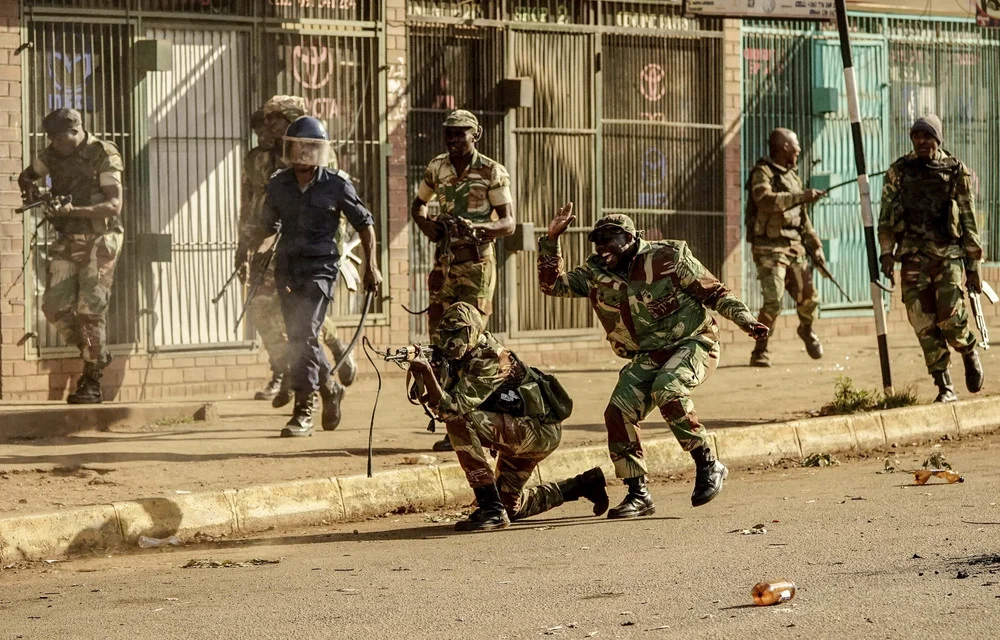
TINASHE KAIRIZA A REPORT produced by the Commonwealth after observing Zimbabwe’s 2018 elections will potentially scupper the country’s desperate bid to rejoin the group, four years after President Emmerson Mnangagwa’s administration applied for readmission.
Rwanda is hosting the Commonwealth Heads of Government Meeting (Chogm) 2022 where Zimbabwe will be seeking readmission after ditching the bloc in 2003 at the height of former president Robert Mugabe’s chaotic and violent land reform programme. The year before (2002), the Commonwealth had suspended Zimbabwe citing deterioration of human rights, collapse of rule of law, and shrinking democratic space – cardinal values which guide the 53-member organisation composed mostly of former British colonies.
On May 9, 2018, Mnangagwa’s administration lodged its application for readmission to Commonwealth secretary-general Patricia Scotland a year after toppling Mugabe through a military coup.
Subsequently, Scotland deployed a Commonwealth team led by Ghana’s former president John Dramani Mahama to observe Zimbabwe’s 2018 elections.
Mahama’s report on the electoral process, according to Scotland, was expected to “give member countries a clear view of adherence to Commonwealth values in Zimbabwe, including democracy and rule of law plus protection of human rights, such as, freedom of expression.”
Mahama’s report, which has since been published and flighted on the Commonwealth website, cites a myriad of irregularities.
In his letter of transmittal addressed to the Commonwealth secretary-general accompanying the report, Mahama underlined that the violence that ensued after the 2018 polls: “marred this phase of the elections”.
“We note that important gains were made in these elections. However, the acute bias of the state media in favour of the governing party, persistent allegations of intimidation reported to the group, and the unfair use of incumbency privileges tilted the playing field in favour of the governing party (Zanu PF).
- Chamisa under fire over US$120K donation
- Mavhunga puts DeMbare into Chibuku quarterfinals
- Pension funds bet on Cabora Bassa oilfields
- Councils defy govt fire tender directive
Keep Reading
“The post-election violence, which resulted in fatalities, and the behaviour of security forces marred this phase of elections. For these reasons, we are unable to endorse all aspects of the process as credible, inclusive, and peaceful,” Mahama said.
President Emmerson Mnangagwa won the 2018 polls against opposition leader Nelson Chamisa by a wafer-thin margin.
Mindful of Zimbabwe’s application for readmission into the Commonwealth, Mahama expressed optimism that his report would offer “valuable” insight to the group on whether to readmit Harare or not.
“We hope our conclusions and recommendations will be useful to the aforementioned national stakeholders as they collectively contribute to the consolidation of democracy in Zimbabwe,” Mahama wrote.
“We also hope it will be valuable in your ongoing assessment of Zimbabwe’s interest to rejoin the organisation.”
The report focuses on Zimbabwe’s electoral and legal framework and election administration, election campaign and media and voting, counting, and results tabulation among other key topics.
In each of the key chapters, the report gives recommendations.
University of London Professor of World Politics Stephen Chan told the Independent that the report by the Commonwealth observer mission would be an albatross hanging on Zimbabwe’s neck.
“The Commonwealth observers who attended the last Zimbabwean elections were dismayed at the heavy-handed treatment of protesters and were themselves subjected to a brief siege by armed police with teargas launchers in their own hotel,” he said.
“Their private report to the Commonwealth secretary-general was against readmission without democratic electoral reform. The Commonwealth proceeds by consensus, not by vote, so no matter what the view of Zimbabwe is in Boris Johnson’s volatile UK, it is unlikely there will be consensus on readmission.
“Whoever becomes secretary-general will not inaugurate her term by making such a controversial recommendation,” Chan added.
Although Britain expressed enthusiasm to support Zimbabwe’s bid to rejoin the Commonwealth in 2018, its stance has shifted owing to the reluctance of Mnangagwa’s administration to roll out key political reforms. Questions sent to Foreign Affairs permanent secretary Ambassador James Manzou on whether Zimbabwe would embrace recommendations passed by the Commonwealth 2018 election observer team were not answered at the time of going to print.
Zimbabwe will hold general elections in 2023.










